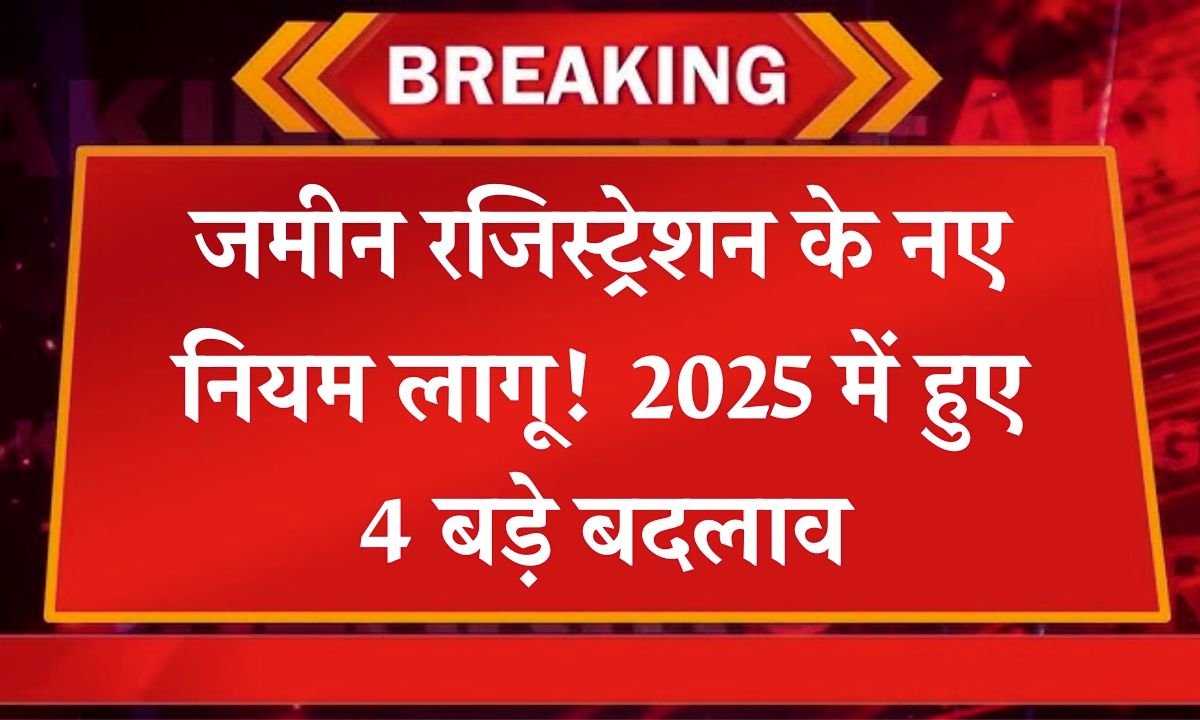India’s land registration system got a major update in 2025, and it’s making waves across the country. Starting January 2025, the government introduced new rules to make property registration safer and clearer, but it’s causing headaches for many. Now, you need extra documents like Aadhaar, PAN, and a Non-Encumbrance Certificate to register land. These changes aim to stop fraud and make records digital, but people say it’s tough to gather all the papers. From small farmers to city buyers, everyone is feeling the pressure of these strict rules.
Why the Rules Changed
The government wants to make land deals more transparent. In the past, fake papers and unclear ownership caused many fights in court. The new rules, part of the Registration Bill 2025, bring in digital records and Aadhaar-based checks to ensure the right person owns the land. You can now register property online, which saves time, but only if you have all the documents ready. The bill also replaces the old 1908 Registration Act, making the process paperless. While this sounds good, not everyone has easy access to the internet or knows how to use online systems.
New Documents You Need
To register land now, you must show several key documents. Without these, your registration won’t happen:
- Aadhaar Card for identity proof
- PAN Card for tax records
- Non-Encumbrance Certificate to show the property is debt-free
- Sale Deed or Title Deed
- Revenue Records like Patta or Jamabandi
- Municipal Tax Receipts
These papers ensure the property is legally clear, but collecting them can take weeks. For example, getting a Non-Encumbrance Certificate means visiting the Sub-Registrar’s office, which is often crowded. Many rural folks find it hard to get these documents, especially if they don’t have Aadhaar or PAN.
Here’s a quick look at the key requirements:
| Document | Purpose |
|---|---|
| Aadhaar Card | Identity verification |
| PAN Card | Tax compliance |
| Non-Encumbrance Certificate | Proves property is debt-free |
| Sale Deed | Proof of ownership transfer |
| Revenue Records | Land ownership details |
Challenges for Common People
The new rules are causing trouble for many. In villages, where internet is spotty, online registration is a big problem. Older farmers often don’t have Aadhaar or PAN, and getting them takes time. City buyers say the extra documents mean more running around to government offices. A farmer in Rajasthan shared that he waited a month for a Non-Encumbrance Certificate, delaying his land sale. Some worry about privacy since Aadhaar details are shared online. The government says there are other ID options, but these are not widely known.
Efforts to Help and What’s Next
To ease the pain, the government is setting up helplines and workshops to guide people. Mobile vans are visiting villages to help with document collection, and over 600 districts now have soil testing labs for revenue records. The Registration Bill 2025 is still open for public feedback until June 2026, so changes might come based on what people say. Experts believe these rules will reduce property disputes in the long run by making records clear. For now, though, many feel stuck with the extra paperwork.
A Mixed Bag for India
The new land registry rules are a bold step toward a modern, fraud-free system. Digital records and strict checks could make property deals safer. But the extra documents and online process are tough for those not used to technology or lacking papers. Farmers and small buyers are hit hardest, as they struggle to meet the new demands. The government is trying to help, but it needs to do more to make things smoother. As India moves toward a digital future, these rules could change how we buy and sell land forever.
